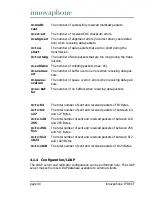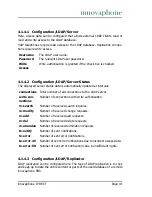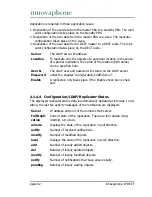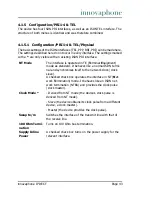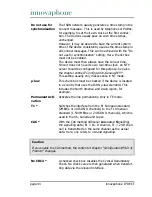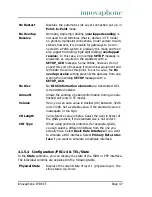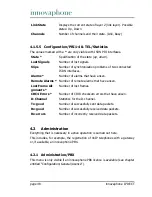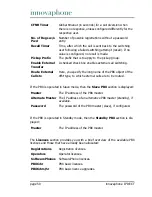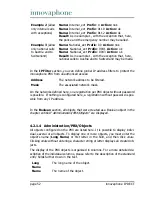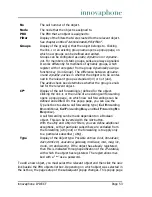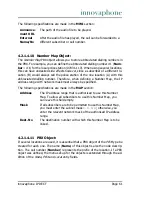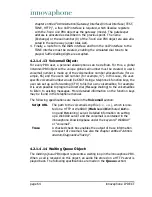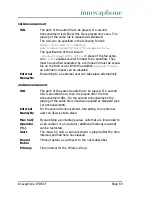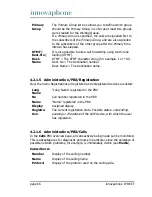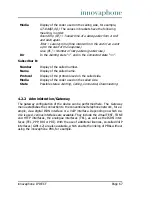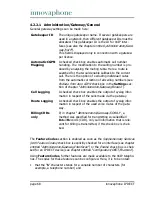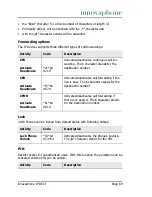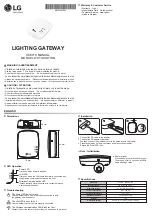
page 54
innovaphone IP DECT
contains standard entry fields, some of which occur in all objects.
These fields are:
Long
Name
The long name of the object. This name is used to identify
the object in the database and for display purposes. The long
name must be unique throughout the system.
Name
The name
of the object. This name is used for signalling (like
a call number) and must be unique throughout the system.
Number
The call number of the object. The call number must always
be unique in relation to a
node
.
Hardware
ID
The hardware ID of the terminal that is to register with this
object.
Node
The node that the object is assigned to. The node determines
the unique call number with which an object can be accessed
throughout the system.
Objects located in the root node can be accessed without a
location prefix; otherwise, the location prefix always has to
be dialled as well. If you enable the
Local
check box, then,
despite a different location prefix, it is no longer necessary to
use it.
This list box is displayed only in connection with the PBX
object of the
PBX
type.
PBX
The PBX or location that the object is assigned to. This PBX
accepts registrations for the object.
This list box is displayed only in connection with the PBX
object of the
PBX
type.
Local
The effect of the Local flag is that objects of different nodes
can be registered and called without a location prefix.
This check box is displayed only in connection with the PBX
object of the
PBX
type.
Password
/ Retype
Password
If a registration password is allocated here, then it must be
specified during registration, or otherwise the registration will
fail.
Filter
For most PBX objects, you can allocate a specific filter (see
chapter entitled “
Administration/PBX/Filter
”).
Diversion
Filter
A filter can also be selected for call forwarding should this
take place (see chapter entitled “
Administration/PBX/Filter
”).
CFNR
Timeout
The time set here (in seconds) is the interval that elapses
before a user’s call forwarding is initialised.

